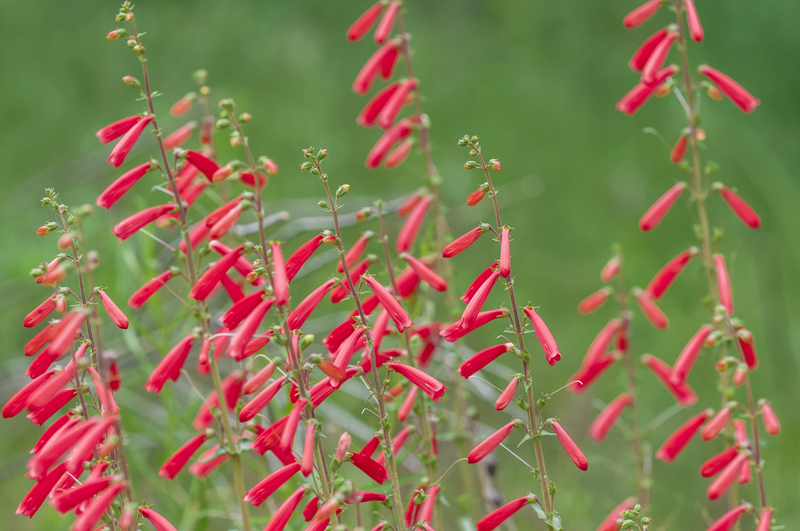Top 5 Reasons to Use Recycled Rainwater in the Garden
Posted on 30/09/2024
The concept of recycling rainwater and using it for gardening is gaining prominence among eco-conscious gardeners. Not only does it contribute to sustainability, but it also offers numerous benefits for the garden and its ecosystem. In this article, we'll delve into the top 5 reasons to use recycled rainwater in the garden, providing insights into its advantages and how to implement this practice effectively.
1. Environmental Conservation
Using recycled rainwater helps in conserving a vital natural resource - water. Potable water supplies are dwindling in many parts of the world, and conserving water in your garden plays a crucial role in preserving this essential resource. By collecting and reusing rainwater, you reduce the dependency on municipal water supplies, promoting a more sustainable gardening approach.

2. Cost Savings
Another significant benefit of using recycled rainwater is the reduction in water bills. Gardens typically require consistent watering, especially during dry spells, which can lead to high water usage and consequently, expensive utility bills. By harnessing free rainwater, you can significantly cut down on these costs and invest the savings back into your garden or other home improvements.
3. Better Plant Health
Rainwater is naturally soft and free of the chemicals and minerals found in tap water, such as chlorine and fluoride. These chemicals can sometimes build up in the soil and negatively affect plant health. Rainwater, being pure and pH neutral, is ideal for most plants, ensuring they receive optimal hydration without the risk of chemical exposure that might impede their growth.
4. Soil Improvement
Using rainwater can enhance the soil's quality in your garden. Unlike treated water, rainwater doesn't contribute to salt build-up in the soil, which can be detrimental to plant growth. Instead, it aids in maintaining the natural balance and health of the soil, promoting better root development and a more vibrant garden overall.
5. Reducing Stormwater Runoff
Recycling rainwater also contributes to the reduction of stormwater runoff. In urban areas, heavy rainfall often leads to runoff that can cause soil erosion and carry pollutants into water bodies. By capturing and using rainwater in your garden, you minimize this runoff, helping to control erosion and reduce the pollution of natural water systems.
Pros and Cons
Pros:
- Promotes environmental sustainability.
- Reduces water bills.
- Improves plant health.
- Enhances soil quality.
- Minimizes stormwater runoff and erosion.
Cons:
- Initial setup cost for rainwater collection systems.
- Requires proper maintenance to prevent mosquito breeding.
- Limited usage during prolonged dry periods.
Tips for Using Recycled Rainwater
- Install a rain barrel or a more sophisticated rainwater harvesting system to collect rainwater from rooftop gutters.
- Ensure that the storage system is properly covered to prevent debris and insects from contaminating the water.
- Regularly clean the collection system and storage containers to maintain water quality.
- Distribute the collected rainwater using a drip irrigation system for efficient watering and conservation of the collected resource.
- Plan your garden layout to maximize the benefits of rainwater and improve water distribution.

Takeaways
Using recycled rainwater in the garden is a smart and eco-friendly practice that offers numerous benefits, including water conservation, cost savings, improved plant health, enhanced soil quality, and reduced stormwater runoff. By understanding the pros and cons, the importance of proper maintenance, and effective usage tips, you can make the most of this sustainable water source.
Conclusion
Incorporating recycled rainwater into your gardening routine is a rewarding endeavor that supports both your household and the environment. With a bit of planning and maintenance, you can harness the power of natural rainfall to nourish your garden and contribute to a more sustainable future.
If you're considering this eco-friendly practice, start small with a rain barrel and gradually expand your system as needed. Embrace the benefits, and you'll likely see a thriving garden and a reduced environmental footprint.
Latest Posts
Inspiring Ways to Refresh Your Garden This Autumn Season
A Step by Step Guide to Keeping Artificial Grass Fresh and Spotless
Creative Planting Ideas to Design a Serene Zen Oasis







